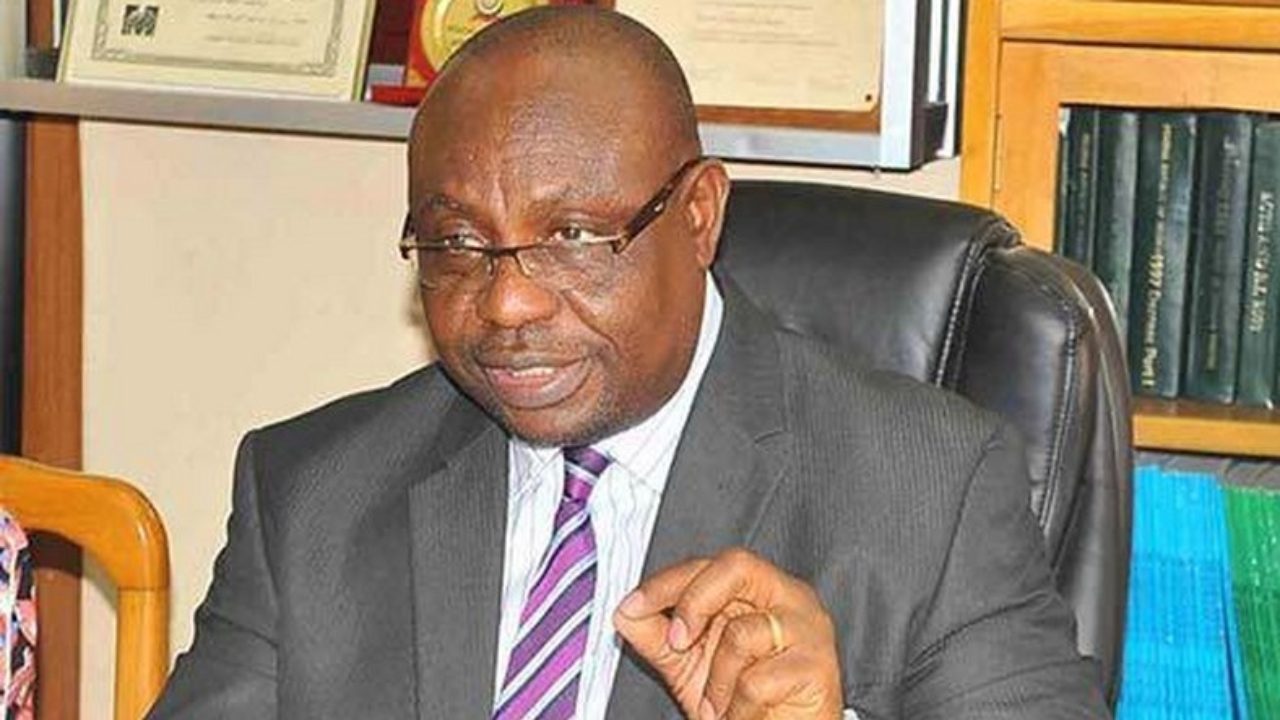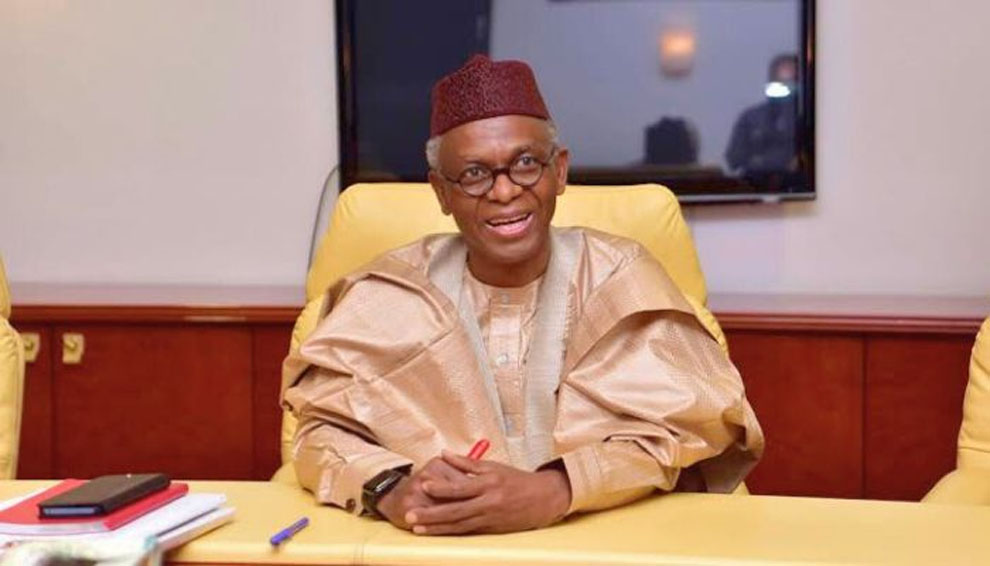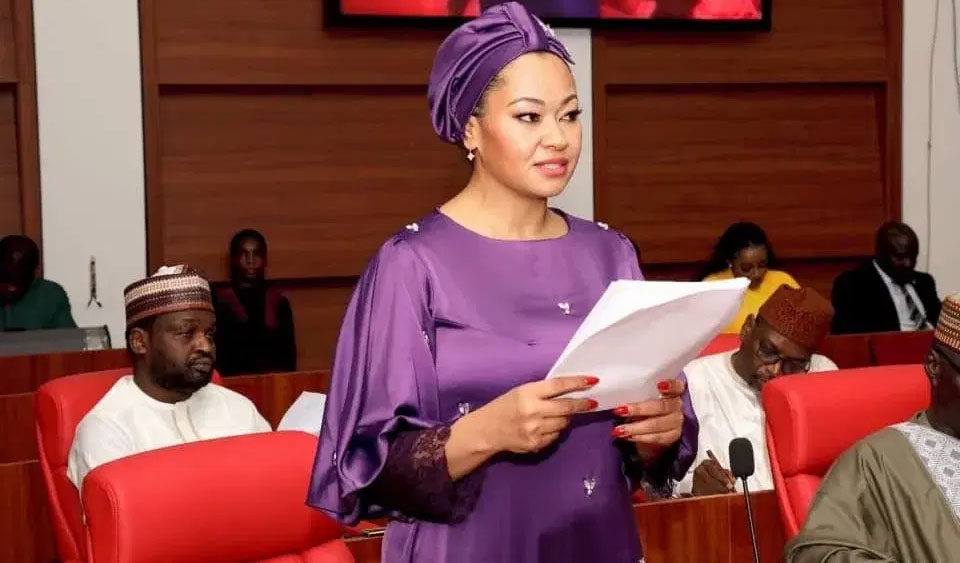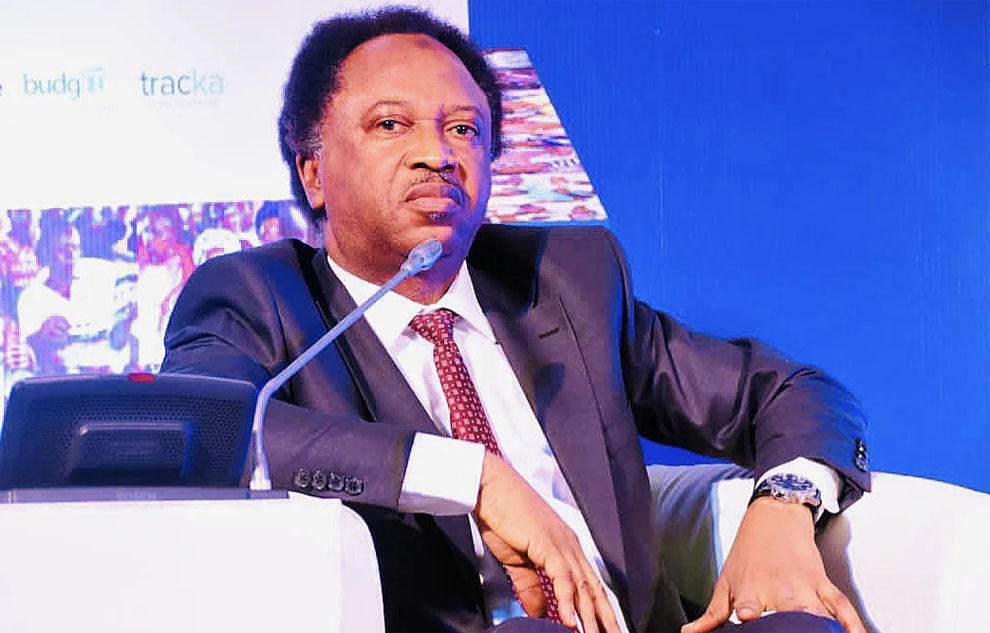Politics
INEC Insists on e-Transmission of Polls Results *Wants National Assembly to revisit Electoral Act

*Says commission not subordinate to NCC
*Saraki asks legislature to act in national interest
The Independent National Electoral Commission (INEC) has asked the National Assembly to revisit the Electoral Act amendment bill, assuring that it has the capacity and technical knowhow to undertake electronic transmission of election results throughout the country. INEC declared that it was not subordinate to the National Communication Commission (NCC) or answerable to any government agency.
In a similar development, former Senate President, Dr. Bukola Saraki, advised members of the Joint Conference Committee of the National Assembly to move fast in considering the different versions of the Electoral Act (amendment) Bill passed by both chambers and let their decisions be guided only by national interest.
That was as the Nigeria Civil Society Situation Room, a coalition of over 70 organisations, asked the Senate to quickly resolve the conflicting aspects of the Electoral Act Amendment Bill so as to save the country from long-drawn litigations and uncertainty, which could put INEC’s preparations for the elections in jeopardy.
INEC called on the Senate and House of Representatives to quickly amend Sections 63, 65 and other relevant sections of the Electoral Act, which bar the commission from collation of election results electronically. It insisted that electronic transmission of results was doable, and it would guarantee safety, honesty and transparency.
INEC’s National Commissioner and Chairman, Information and Voter Education, Festus Okoye, insisted that the electronic transmission of results real time was the best guarantee of transparency.
Speaking in a television programme monitored in Abuja on Monday, Okoye said INEC was determined to use electronic devices to improve Nigeria’s electoral process, and deliver free, fair and credible elections. Okoye said for such to become a reality, the National Assembly must show courage by amending the relevant sections of the Electoral Act.
He said, “Although INEC is increasingly tilting towards the use of technology to deliver a free, fair and credible elections in Nigeria, we want the National Assembly to amend the law, which prescribed the method elections are being conducted at the moment.”
Okoye admitted that INEC was still using the manual method, as enshrined in the Electoral Act, by collating election results from the Polling Units (PU), using Form EC8A, and Registration Area Collation Centre (RACC), with Form EC8B up to local government areas, and using Form EC8C to collate results, which are computed manually before announcement.
Okoye maintained that INEC had perfected the use of technology to conduct elections starting from the 2023 general election.
He stated, “For us to alter the methodology, the Electoral Act must be changed to accommodate the new innovations. We want National Assembly to amend the Electoral Act to enable INEC deliver a more transparent, fair and credible elections that will meet the aspirations of Nigerians. They should also look at 51, 52, 53 and 57 of the Electoral Act.
“We are already uploading election results electronically but we will need the relevant sections of the Electoral Act to be amended to avoid litigations, because INEC doesn’t want our election winners to be determined by the law courts.”
Okoye said the commission was not answerable to NCC or any other federal government organ in carrying out its constitutional duties, saying INEC has inherent powers to conduct elections.
He said, “Nobody can bully INEC to share its powers given by the Constitution of Federal Republic of Nigeria of Nigeria. Section 160 of Nigerian constitution mandates INEC to give NCC duties to perform, not NCC giving INEC orders.
“Also, Section 52 of Electoral Act gives INEC inherent powers to conduct elections in any manner it wants, including e-voting. Again, the 2015 Electoral Act (as amended), which was signed by the former president, Dr. Goodluck Jonathan, has given INEC unfettered powers to conduct elections in the best method available.”
He insisted that the present method of manual collation of election results from PU, RACC and LGA should be done away with, adding, “With the introduction of Bimodal Voters Accreditation System (BVAS) and other devices by INEC, elections in Nigeria can only get better, hence, National Assembly should join in deepening Nigeria’s democracy.”
On his part, Saraki said in a statement by the head of his media office, Yusuph Olaniyonu, that the harmonisation of the versions of the Electoral Act (amendment) Bill and its eventual passage should be concluded in time so that the law could be assented to before the political process leading to the 2023 general election. He said the success of the next round of elections would depend on the existence of a new enabling law with relevant provisions that would guarantee a credible, free, fair and peaceful process.
The statement said, “That is why it is important that members of the Conference Committee should strive hard to rise above partisan and personal considerations. They should take decisions solely based on national interest and the need to strengthen our electoral process. The country is bigger than our various political parties. Nigeria is even bigger than any individual or any loyalty we may have to an individual.
“That is why members of the committee should give genuine and deep consideration to the delicate issue of adopting the provision on electronic transmission of results, which will help to strengthen our electoral process, deepen our democracy and improve the level of participation in the elections.
“Your assignment is very crucial to the future of our country and if through your work we get a good law that will help in reforming the political process, you will be completing a great circle in the building of a legacy. It is a circle that started, when the immediate past National Assembly passed the same bill and only failed to get presidential assent, because of the politics of the period.
“I want to remind members of the respective hallowed and honourable chambers that at this point in our national history, we cannot fail to seize the opportunity that this bill presents to us to enthrone a credible and transparent electoral process. Whatever you do as you consider this bill is your own role in making history, in saving our democracy and building a future that is stable and progressive, where elected leaders truly represent the interest of the people.
“It should be noted that even after leaving the National Assembly, I have consistently canvassed the need for us to quickly pass a new Electoral Act that will include important provisions aimed at developing our electoral system. On one occasion in September 2020, during a webinar conference on ‘Electoral Reforms and Democracy’ organised by Centre for Advancement of Civil Liberties, I called on Nigerians to continue to create awareness on the importance of the Bill ahead of the 2023 elections
“At this point, I need to appreciate the efforts of young people across the country, who went round spending their time and resources to create events aimed at generating awareness on the Bill, all members of the National Assembly, who have made sacrifices to get us this far, various development partners, civil society groups, members of the press and other stakeholders who played different roles in getting the Electoral Act (amendment) Bill to the semi-final stage, where it is almost getting to the point of becoming an effective Act of Parliament. We must continue to improve our system until we achieve the real objective of ‘One Man, One Vote’ and where the votes of the electorate count.”
The Nigeria Civil Society Situation Room said the version of the Electoral Act Amendment bill stipulating the recommendation of NCC before transmission of results electronically was a breach of the constitution. Convener of the group, Ene Obi, said at a news conference on Monday in Abuja that this would not augur well for democracy in the country. Obi insisted that the power to determine the procedure for transmission of results should be vested with INEC.
The Situation Room and its European Union Support to Democratic Governance in Nigeria (EU-SDGN), its implementing partners, called on the National Assembly to show selflessness during the harmonisation.
It stated, “Notwithstanding the landmark proposals in the on-going review process, civil society partners and key stakeholders have identified about 17 points of divergence in the versions of the Electoral Act Amendment Bill passed by the National Assembly. These are the use of smart card readers, deployment of electronic voting, collation and transmission of results, cost of campaigns, process of nomination of candidates, among others.
“As expressed by a vast majority of electoral stakeholders and Nigerians, we are concerned by these identified differences in the proposals, particularly, regarding electronic transmission of results and deployment of technological devices.
“Following from our experience and observations of elections in recent years, as well as widely held views by Nigerians, we expect the harmonisation committee to accept the version of the bill that allows INEC to determine the mode of conduct of elections, including transmission of results.”
Obi said INEC had shown that it had adequate capacity to use technology in elections, including the transmission of results.
Ene added that INEC’s capability had been proven during the off-circle elections and through its use of the Z-pad and more recently, the Bimodal Voter Accreditation System (BVAS).
Another member of the Situation Room, Cynthia Mbamalu, said the group recommended the adoption of the senate version of clause 43, which recognised that INEC could use voting devices alongside election materials.
In addition, Mbamalu said, the group urged the harmonisation committee to adopt the Senate’s version of clause 49, which recognised the use of other technological devices alongside smart card readers for voter accreditation. She added that the House of Representatives version of clause 52 should be adopted, as it gave INEC the power to determine the procedure for voting and transmission of election results.
Chuks Okocha in Abuja and Onyebuchi Ezigbo, Thisdaylive
Politics
Updated: You can only be admitted from wards, SDP tells El-Rufai, others

Updated: You can only be admitted from wards, SDP tells El-Rufai, others
Former Kaduna State Governor Mallam Nasir El-Rufai and other political leaders planning to join the Social Democratic Party (SDP) have been told to follow due process.
The Forum of State Chairmen of the SDP said new members could only be admitted from their wards.
They rose from an inaugural meeting of the 36 states and Federal Capital Territory (FCT) chairmen in Abuja yesterday to give the directive.
The forum said there would be no sacred or preferential treatment for new joiners.
Last month, El-Rufai through his X handle announced his membership of the SDP, a move the Kaduna State chapter of the party rejected.
The party stated that he is not a recognised member.
It’s Assistant National Secretary (North West) , Idris Inuwa, at a news conference said El-Rufai’s entry into the party remained a rumour as he was yet to follow due process.
Welcoming new members after its meeting, the Chairman of the forum and Lagos State Chairman, Femi Olaniyi, said the forum resolved to welcome the influx of new members, including prominent politicians from across the country but gave conditions to be fulfilled.
Olaniyi said, “New members will be admitted and registered through the party’s internal structures, led by the chairmen.”
“New members cannot admit or register themselves as members of the party,” he added.
READ ALSO:
- Road closure: Reno Omokri tackles angry Lagos residents over gridlock
- ICPC vows to jail LGA chairmen found diverting funds
- Court stops police, DSS from arresting Fubara’s Chief of Staff
On the ongoing moves by some opposition elements to join the party ahead of 2027, the SDP sub-national leaders warned that “democratically elected structures of the SDP at the state and national levels must not be truncated or dissolved to appease new joiners or at the whims of any individuals or interests. Elected officials should be allowed to serve out their terms.”
Admitting that the merger talks with the party may warrant some structural adjustments to accommodate new members, the state chairmen warned that fundamental issues such as changes to the party’s name, logo, insignia, slogan, or any drastic alterations to the party’s Constitution or Manifesto must not be undertaken.
According to them, such issues and changes should be thoroughly discussed by the National Executive Committee (NEC) of the party before taking any action.
The forum passed vote of confidence in the Shehu Musa Gabam-led National Working Committee (NWC).
They also hailed members nationwide for their outstanding efforts in building and positively repositioning the party.
Updated: You can only be admitted from wards, SDP tells El-Rufai, others
Politics
One battle down, two to go, Natasha speaks on INEC rejection of her recall petition

One battle down, two to go, Natasha speaks on INEC rejection of her recall petition
Lawmaker representing Kogi Central in the Senate, Natasha Akpoti Uduaghan, has reacted to the rejection of a petition to recall her by the Independent National Electoral Commission (INEC).
The electoral body had said the petition for the recall of the senator did not meet the requirement of the Nigerian Constitution.
It said in a tweet on its official handle, on Thursday, “The petition for the recall of the Senator representing the Kogi Central Senatorial District has not met the requirement of Section 69(a) of the Constitution of the Federal Republic of Nigeria 1999 (as amended).”
INEC said the number of constituents who signed the petition against the suspended lawmaker fell short of 50% of registered voters in the constituency as required by the constitution.
The development comes after the suspended lawmaker accused the electoral body of bias in the attempt to recall from the Senate.
Reacting through her official Facebook page, Natasha wrote, “Oh God it’s victory for the people. One battle down, two more to go.
“Deep gratitude to my beloved husband, awesome support team, magnificent people of Kogi Central and great people of Nigeria at large.
“INEC Nigeria, you did well. Senator Natasha H Akpoti Uduaghan Proudly Kogi Central.”
Politics
2027 election: Shehu Sani declares bid for Kaduna central senatorial seat

2027 election: Shehu Sani declares bid for Kaduna central senatorial seat
Former Kaduna Central Senator, Shehu Sani, has officially announced his intention to contest for re-election in the upcoming 2027 general elections.
Sani made the declaration on Sunday while delivering his Eid-el-Fitr message at his residence in Kaduna. The former senator, known for his vocal stance on national issues, expressed his commitment to representing the people of Kaduna Central once again and addressing key challenges facing the region.
“Any politician contesting an election depends on the political equation that determines the position to vie for. If the conditions are right and the equations are favorable, I will offer myself to contest specifically for the Kaduna Central senatorial district,” he stated.
He further emphasised that his ambition remains secondary to ensuring the re-election of Governor Uba Sani for a second term.
“For now, our priority is to see that the incumbent governor, Uba Sani, is re-elected. We will work with all our might and strength to achieve this. We know there will be challenges and opposition, but we are well prepared for all forces,” he added.
READ ALSO:
- How they murdered my Kano-bound passengers in Edo
- Adeleke threatens to dethrone monarchs over communal crisis
- ‘Killing of Democracy’ comment: Reno Omokri disagrees with Dele Momodu
Sani also used the occasion to urge Muslims to pray for Nigeria’s peace and unity during the Eid-el-Fitr celebrations. Additionally, he condemned the recent killing of hunters in Edo State, calling on security agencies to apprehend the perpetrators.
“If citizens cannot move freely across the country, then we are not truly a nation. If individuals take the law into their hands for any reason, it means there is no government or authority,” he lamented.
He called on all Nigerians who desire a better country to work towards peace and unity for the preservation of democracy, despite the challenges being experienced.
Sani also urged the government to uphold fundamental human rights, particularly the right to life, as a crucial step towards national stability and development.
2027 election: Shehu Sani declares bid for Kaduna central senatorial seat
-

 metro2 days ago
metro2 days agoMan jailed 3 months for non-declaration of $30,000 at airport
-

 International2 days ago
International2 days agoTrump slams Nigeria with high tariff in shocking trade crackdown
-

 metro2 days ago
metro2 days agoUpdated: Notorious bandit leader Bello Turji goes berserk, kills 12 for Eid
-

 metro1 day ago
metro1 day agoPetitioners mobilise constituents for fresh Natasha’s recall
-

 metro3 days ago
metro3 days agoEdo Gov Okpebholo wins round one as tribunal upholds his election
-

 metro1 day ago
metro1 day agoFraud rocks FIRS, court orders final forfeiture of Abuja, Kano houses linked to official
-

 metro2 days ago
metro2 days agoSouth African court acquits Nigerian pastor of rape after 8 years in jail
-

 Business2 days ago
Business2 days agoMore heads to roll in NNPCL, subsidiaries as Ojulari assumes office

